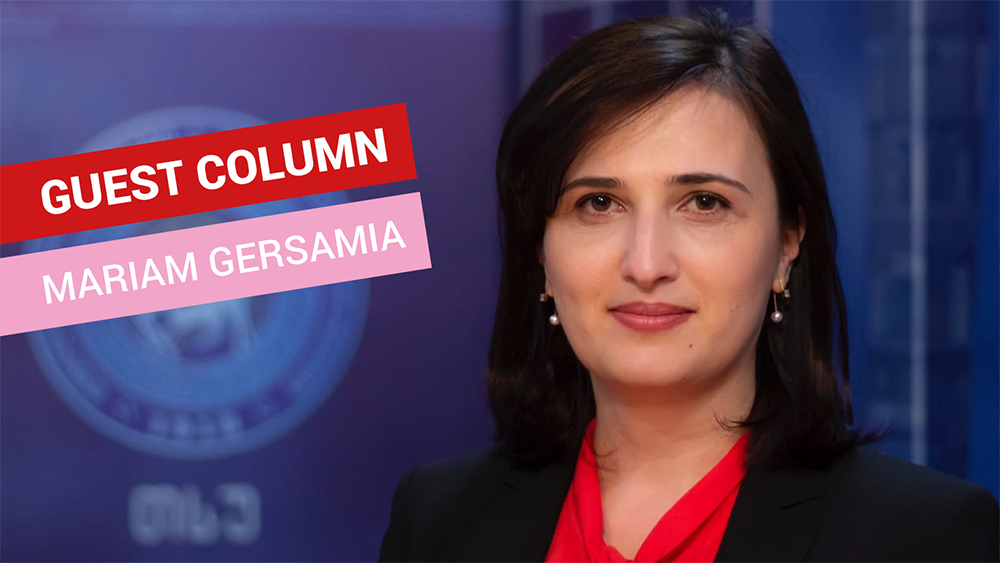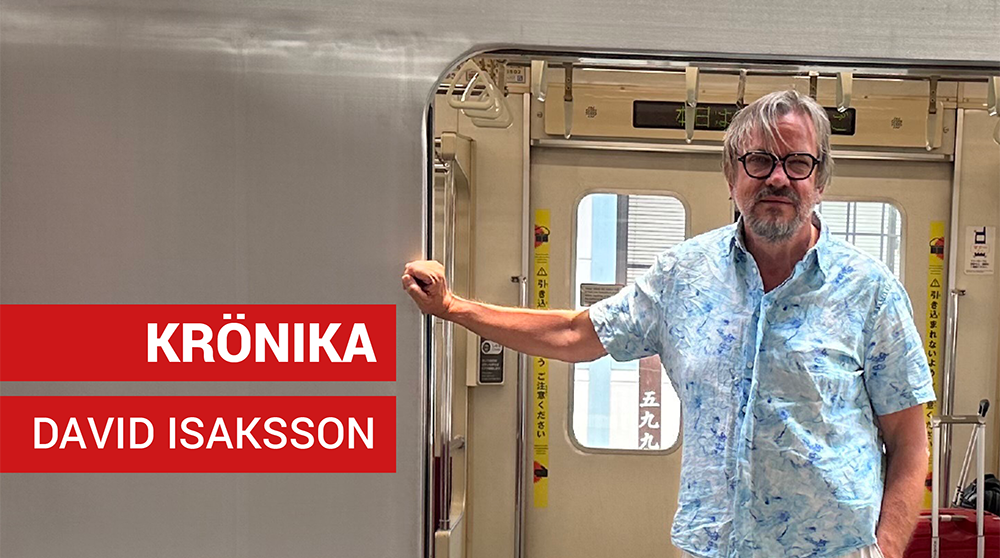COLUMN. With the new law on foreign agents, the Georgian government wants to stifle all independent voices – including the media. That’s why we must fight for our freedom, ahead of the elections on 26 October, writes Mariam Gersamia, professor at Tbilisi State University and president of the organisation Media Voice.
The opinions expressed in this article are those by the author.
I was born in the Soviet Union and was 15 years old when it collapsed. The legacy of that era still lingers today in my country—Georgia. Growing up in the shadow of the Soviet regime, we dreamt of a freedom we had never truly lived or experienced.
After 33 years of Georgia’s independence, I found myself referencing the USSR constitution for an academic paper for the first time. Did you know that the Soviet Union’s Constitution guaranteed certain rights and freedoms to its citizens? It promised equality before the law, mentioned freedom of speech, freedom of the press, and freedom of assembly (including mass meetings). I was shocked to rediscover that, as history and my own experience show, what was promised on paper differed starkly from the grim reality in the ”empire of evil.”
No future with Russian Dream
It is important to understand the past, but the significance of ”remembering the future” cannot be overstated. It’s 2024 and we are no longer bound by a past (with Russia) we did not choose; we are defined by the future we are actively shaping (with Europe). This future is already grounded in our shared values, where a free press and individual freedoms are the cornerstones of both society and our everyday lives.
Today, Georgia has a constitution that aligns with European standards. Georgia’s integration into NATO—a goal enshrined in our constitution—was reaffirmed by a plebiscite, with over 77% of Georgians supporting this path in 2008. Article 78 of the Georgian Constitution enshrines Georgia’s commitment to pursuing membership in the European Union and NATO as a key strategic goal. And yet, our deepest aspiration remains the realization of freedoms, not merely their inscription on paper.
The reason I refer to this is simple: how laws are implemented in practice and who implements them matters profoundly, especially in post-Soviet countries like Georgia. Media freedom, in particular, is the backbone of democracy, as ethical and responsible journalism is essential for building a robust democratic society. However, the recent enactment of a ”foreign agents” law in Georgia—a replica of Russian legislation designed to stifle dissent and independent voices—feels like a step back into the USSR’s shadow. This law threatens to undo the progress we’ve made and steer us back toward the kind of media control that was a hallmark of the Soviet Union and is now characteristic of Putin’s Russia. The adoption of the “Agent’s law” in Georgia mirrors the fragility of democracy worldwide. The trend followed by authoritarian regimes has a chilling effect not only on a local level but on global society, with media being the main target.
The current Georgian government is not only engaging in anti-Western rhetoric but has also made it a central promiseahead of the elections to ban and prosecute their opponents. In this context, their objective includes taming or eliminating critical media. That means, that media ecosystem we envision for Georgia could simply disappear, just as it did during the Soviet era, leaving behind only fear, self-censorship, and no freedom. To preserve and build a robust ecosystem with higher-quality journalism, the existence at least of free and critical media is paramount.
Test of time
During the recent anti-Russian protests in Spring, we witnessed a new generation of youth (GenZ) standing up against the ”Russian law.” This generation’s experience is distinct from that of us. For over 19 years, the United National Exams have been a pivotal event every August for Georgian youth, offering them an equal opportunity to enter university, free from the corruption and nepotism that once tainted the educational system. In his new book “Exams”(2024), Alexander Lomaia, a key architect of Georgia’s educational reforms, recalls a conversation with Kakha Bendukidze in 2005, another major reformer following the Rose Revolution. They spoke of building reforms that would be difficult to dismantle, even if authoritarian regimes returned. This idea resonates strongly when thinking about the media, and it will be even more critical for the future: we must build a media ecosystem capable of withstanding the pressures of authoritarianism. Unfortunately, we have already moved beyond the stage of potential threats, and the risk to critical media is now a present reality.
It’s no longer just about asking where Georgian media is heading but about having faith that the whole country will choose the right path. These divergent paths present us with a stark choice, especially during this ’super election year,’ one that will shape the future in which new generations will be born, raised and educated—hopefully, with less of everything Soviet and more of what true freedom brings.
Mariam Gersamia
Professor at Tbilisi State University and Chair of Media Voice
Read also
|
Uppläsning av artikel
|


